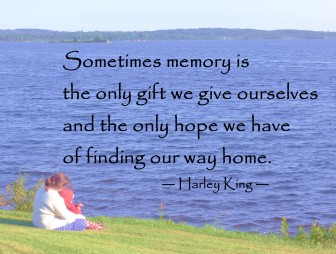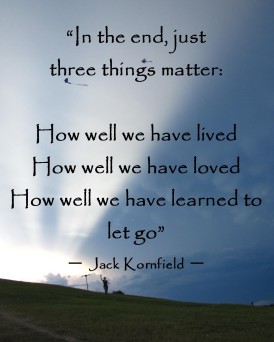
blind·er
noun
1. a person or thing that blinds.
2. a blinker for a horse.
3. British Informal. a spectacular shot or action in sports, especially soccer: He played a blinder.
http://dictionary.reference.com
My morning opened with a “evangelical” video shared by my sister. On this video, according to our different understandings of some of the words, there was a point of agreement. But as the piece progressed, knowing the type of letters and comments that have been posted by so much of my family, I sadly knew that to build a conversation further than the video would end in dissension.
Listening to this video and knowing that the rigidity of beliefs would break down any chance of discussion, my B word came to mind: Blinders.
It was interesting to follow this word on line to the documentary Blinders directed by Donny Moss and debated in great length on several different networks and videos. In all the debates and conversations I watched, one point stood out in my mind in relationship to come of the events in the past week. Asked what prompted him to actively create this documentary he speaks of walking past the animals for years feeling that something was wrong. It took a horse being hit in the side for him to begin asking the hard questions that led to the documentary.
Like so many of us, it takes publicized catastrophy to push us into action. Having been trained by cultural ideals of being a “polite society”, too often we hold back those comments that could make waves, often leaving those who believe their ideals are more important than politeness to crowd the airways. We put on our blinders, shutting out these dissensions, pressing the “I don’t want to see this” buttons and saying nothing unless some braver soul posts something we can agree on.
In the United States, a “horse” got hit this week. A policy change in a highly visible religiously affiliated group accepting one formerly disenfranchised group of people meets with the power of the outspoken voice that claims to serve the same God that I follow. Knowing that my family stands hand-in-hand with those who chose to use the power of the mighty dollar to bully the organization to remove the change, I stayed silent except where I could hide my words from my family.
I stay silent as well because I know that the same Bible they are using to disenfranchise this community from the right of creating families holds even more verses against me as a divorced person if you read it as a static account. I stand silent because I feel myself in the place between. My own acceptance stands at a balance since the policy that accepts these people still would leave me out. I hide in my silence wanting to hold on to what little acceptance I feel left with from my family who would be so vocal about the “horror” of this acceptance. I do not see my voice as valued, or so I think to justify my silence.
When the reality that choosing to show acceptance would adversely affect those organizations that they were working with, the U.S. organization rescinded their policy change. While I do, in some ways, understand their decision, I am saddened by what that has to say to the group of people who have had one further act of discrimination publically thrown at them.
As a person who has experienced God’s mercy and grace extended beyond my understanding, I struggle with those who would create a hedge of acceptable and unacceptable actions to determine what it means to follow Christ in the life of another. I believe and yet when the accepted discrimination is publicized, I see the mirror of my own participation because I have chosen to be silent to protect myself from the exclusion I will experience if I speak out. It calls me to begin questioning the forces that I have blindly tried to hide under the radar from for the past decade of my life.
What will I choose to do with this? I look to the Quakers in the process of abolition for some guidance. I see the example of Benjamin Lay who pulled himself so far off the path of cultural expectations that his message could be denounced and yet was seen as a possible affect to some within the organized structure of the Quakers. Will I isolate myself even further from the organizations that now exist in the name of the God I believe in? Or will I find a way to step out of this isolation I have and enter the arena of voices speaking belief that resonates with a gospel of inclusion?
I am on the edges. I am a Benjamin Lay in my influence but not in the strength of my stands on any issues of faith. I feel so ineffectual in my ability to make any difference. Maybe I should put my blinders back on and curl up in my isolation. It would be the easiest on the short run, except I would keep running up against my own soul.
And so I risk these words on my sister’s thread:
“I find this a beautiful talk. I find sadness in it though in the fact of how many Christians have accepted the “righteousness of the Pharisees” as their mark of whether or not others are Christians. It is so easy to look at others in our prayers and say “I am not a sinner like that man/woman/child” or more frighteningly, “Since that person does so and so I get to sit on God’s judgment seat and decide they are not a Christian”. May God grant us the grace Paul talks about in Romans 14 as we who are children of the same father learn how to live a living risen Christ to the world we live in.”
For those who are in groups where you are supported in your growth of faith, that may seem small. For me, it was a mountain since I have seen the things my family posts. But it is what I needed to say.
You see, divorce and depression are two forces in my life that have shattered the connectors for my blinders. And I struggle with the hatred that the world sees too often as synonomous with faith in the God who I not only love, but who I believe has made a difference in my life even with the unacceptance I have experienced from many who also call upon The name of the One I Love.
If my God has done that for me, then I will not offer less to anyone. I will continue seeking those in the faith community who serve an inclusive God. If God is anything less, than there is no hope for me.
*Please note, in posting this as a part of the A to Z Challenge I am not holding that my views are in accordance with those of any one else involved.













